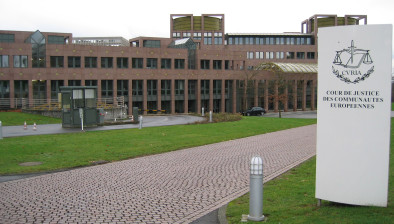High Court: Environmental activists successfully challenge the validity of peat extraction legislation
An environmental activist network has been granted an order setting aside secondary legislation which amended the regulation of large-scale peat extraction.

About this case:
- Citation:[2019] IEHC 646
- Judgment:
- Court:High Court
- Judge:Mr Justice Garrett Simons
Finding that the amended legislation was inconsistent with EU environmental law, Mr Justice Garrett Simons also found that the use of secondary legislation to amend primary legislation was, under the circumstances of this case, impermissible.
The Ministerial Regulations
In January 2019, two pieces of secondary legislation were introduced: the EU (Environmental Impact Assessment) (Peat Extraction) Regulations 2019 (S.I. No. 4 of 2019), and the Planning and Development Act 2000 (Exempted Development) Regulations 2019 (S.I. No. 12 of 2019) – referred to collectively throughout the judgment as “the Ministerial Regulations”. The Ministerial Regulations purported amend primary legislation: the Environmental Protection Agency Act 1992 and the Planning and Development Act 2000 .
The Ministerial Regulations have the effect of exempting peat extraction of more than 30 hectares from planning permission – instead, peat extraction on this scale would be subject to licensing by the Environmental Protection Agency.
The exemption from the requirement to obtain planning permission came into immediate effect, however, the Regulations provided for a significant “transitional period” of up to three years before the new licensing regime would come unto full force and effect.
During this transitional period, developers without planning permission or a license would be “allowed to continue carrying out peat extraction unabated”.
In April 2019, Friends of the Irish Environment (FIE) instituted the present judicial review proceedings, challenging the validity of the Ministerial Regulations.
In July 2019, Mr Justice Simons granted FIE interlocutory relief, restraining the implementation of the Ministerial Regulations pending the outcome the substantive judicial review proceedings herein. Stating that the transitional provisions gave rise to a “lacuna in the governance of peat extraction”, Mr Justice Simons said that to refuse the injunction would risk undermining the effectiveness of EU environmental law and also risked harm to the environment.
Flagrant breach of EU environmental law
FIE contended that the amendments were a “flagrant breach” of the Environmental Impact Assessment Directive and the Habitats Directive, and that the transitional period amounted to an “enforcement holiday” contrary to EU law.
Mr Justice Simons agreed that the procedure provided for under the amended legislation was inconsistent with the Environmental Impact Assessment Directive and the Habitats Directive. He said that EU Member States enjoy “limited discretion to make provision for the regularisation of development projects which have been carried out in breach of the requirements of either or both of the EU Directives, the amended legislation exceeds this discretion”.
He said the offending features of the amended legislation included the absence of:
- Any possibility of suspending peat extraction during the transitional period;
- Exceptional circumstances which justify affording developers who have carried out—and continue to carry out—development in breach of EU law an opportunity to regularise their legal status;
- Proper legislative provisions to ensure that any assessment is both prospective and retrospective.
Stating that the regime purported to leave projects undisturbed without proper authorisation or assessment, Mr Justice Simons likened the shortcomings of the amended legislation to the “old” planning legislation which had been condemned by the Court of Justice of the European Union C-215/06, Commission v Ireland.
Impermissible use of secondary legislation
FIE submitted that the use of secondary legislation to amend primary legislation was impermissible, and that the Ministerial Regulations went beyond the mere implementation of “principles and policies” set out in the EU Directives – therefore requiring primary legislation.
Mr Justice Simons agreed that, in the circumstances of this case, the use of secondary legislation was impermissible. He said that the use of secondary legislation inconsistent with EU legislation could not be said to give effect to the “principles and policies” contained in the EU legislation, and could not be said to be “incidental, supplementary and consequential” to the EU legislation or “necessitated” by the Irish State’s membership of the EU.
Mr Justice Simons said “[e]ven if… the Ministerial Regulations could be said to be consistent with the EIA Directive and the Habitats Directive, the use of secondary legislation would still be impermissible”. He said that if the Directives did allow for the broad discretion contended for by the State, then the policy choices “should have been made by the Oireachtas through the enactment of primary legislation”.
Granting the application for judicial review, Mr Justice Simons said he would make an order setting aside the Ministerial Regulations in their entirety.
- by Róise Connolly for Irish Legal News









